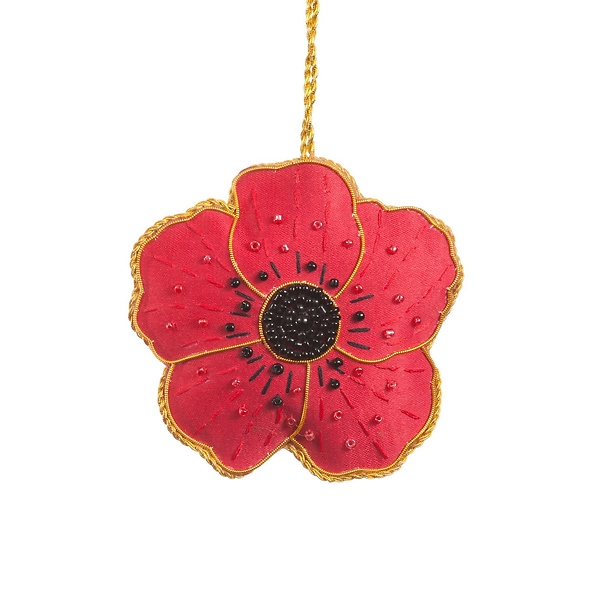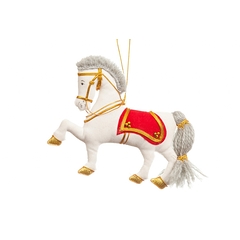Christmas ornament - Poppy
Description
Poppies and blueberries are now symbols of the World War. On the lands devastated by shelling, along the trenches and near the battlefields, bloomed a blood-red flower, the poppy. Today, the Anglo-Saxon tradition of wearing a poppy of paper as a souvenir of the Great War is being universalized. In France, the blueberry, also present on the battlefields and whose color is reminiscent of the uniforms of the Poilus, has also become a flower-symbol of the sacrifice of the soldiers during the first world conflict. The French hairy had themselves chosen this flower as a symbol of their war. In 1915, the veterans of the mobilization, dressed in the blue and red uniform, gave the nickname "blueberries" to the young recruits who arrived at the front, dressed in the new blue horizon uniform of the French army. Handcrafted of Indian origin, in the tradition of the Zardozi embroidery technique.


